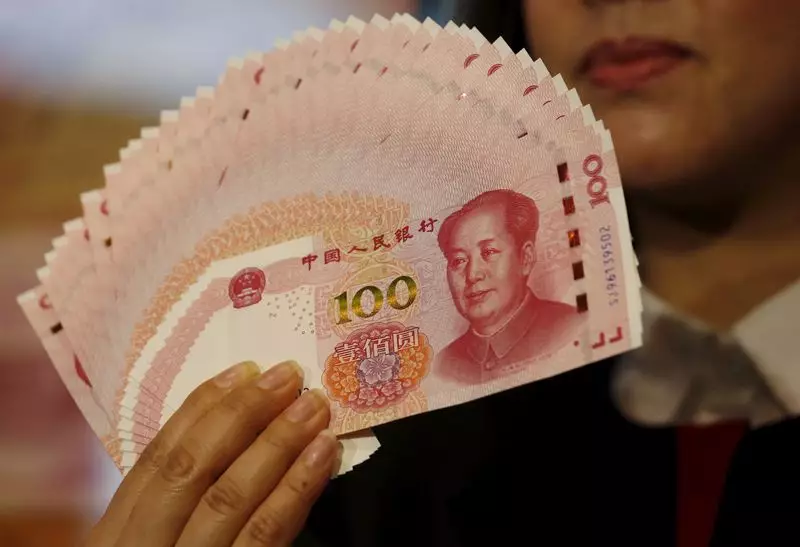As China grapples with financial challenges, a disturbing trend has emerged, resembling the plot of a popular entertainment phenomenon – “Squid Game.” While the stakes aren’t as lethal as in the dystopian series, the exploitation of vulnerable individuals is alarmingly similar. Fraudsters are capitalizing on the economic downturn by enticing financially distressed citizens with tempting promises of prize money and debt relief. In reality, these individuals are often lured into schemes that range from dubious isolation challenges to misleading credit repair services, leaving them in a worse situation than they were before.
The backdrop of a slowing economy has contributed significantly to the rise of these scams. Reports indicate that China’s economy grew at its slowest pace in over a year as of September, leading to increased economic anxiety. In desperate times, people often look for quick fixes, making them ideal targets for fraudsters.
One of the most prominent scams features isolation challenges, popularly showcased on platforms like Douyin, China’s version of TikTok. Participants pay hundreds of dollars with the hope of winning substantial sums, only to find themselves ensnared in unfair contracts and excessive restrictions. The challenges are underscored by a list of stringent rules, including limited bathroom breaks and restrictions on communication with the outside world.
Regrettably, those who dare to participate in these deceptive isolation challenges often discover the harsh realities hidden beneath the veneer of opportunity. In one case, a court in Shandong ruled in favor of a participant named Sun, who was denied a refund despite following strict guidelines. The organizers claimed he had violated rules by obscuring his face, despite his claims of innocence. Such scenarios illustrate the subjective nature of the rules, and how they can readily be manipulated by those running these schemes.
As a result, many of these distressing experiences elicit outrage from participants who feel they have been wronged, yet courts must dissect the often convoluted and unclear contract terms to achieve justice. The psychological toll of participating in these challenges complicates matters further, as players invest not only money but also their hopes and dreams for a better financial future.
Parallel to these isolation schemes, another insidious form of fraud has garnered attention: debt relief services. In a climate where personal debts are at a staggering 82.47 trillion yuan ($11.3 trillion), it is no surprise that many individuals seek assistance in navigating their financial woes. Unfortunately, this opens the door for intermediaries claiming to help restructure debts and improve credit profiles, often at monumental costs.
The National Financial Regulatory Administration’s warnings emphasize how these intermediaries may charge exorbitant service fees, potentially up to 12% of the loan value. Furthermore, there is an unsettling risk that individuals’ personal information may be compromised, leading to further financial instability. Like the isolation challenges, these debt relief scams prey on the vulnerable, exacerbating the very issues they promise to resolve.
As the Chinese government grapples with this burgeoning challenge, the crucial call for vigilance is essential. The Cyberspace Administration of China and prominent social media companies must take accountability to ensure they quickly identify and shut down fraudulent activities. Consumers, too, hold a responsibility to educate themselves and be cautious, especially when promises sound too good to be true.
In a society increasingly driven by technology, protecting citizens from cons that exploit their desperation becomes ever more crucial. Organizations, regulators, and citizens alike must collaborate to ensure that potential victims are safeguarded against deception, restoring trust in an economy struggling to find its footing.
As these scams proliferate, one thing remains clear: during times of economic strife, the line between opportunity and exploitation becomes perilously thin. It is imperative to foster an environment where genuine support systems can exist, ultimately uplifting those in need rather than further complicating their circumstances.

